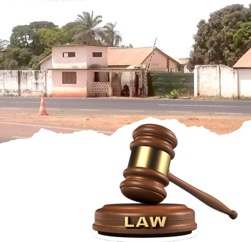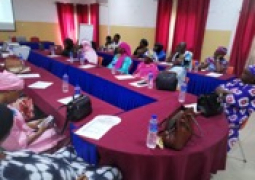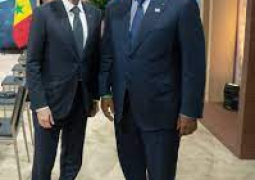
According to records from prosecutors, they have missed certain court proceedings due to transportation issues. Prosecutor Nuha Bojang, appearing before Magistrate Colley, informed the court that the absence of the accused was directly attributed to the unavailability of a vehicle to transport them.
The inability to provide suitable and efficient transportation for inmates significantly impedes the progress of legal proceedings. In cases where defendants are incarcerated pending trial, such as that of Demba, Musa, and Edrissa, the lack of a transport system becomes a significant barrier to upholding the principles of justice. When these individuals are unable to physically attend their court hearings due to transportation issues, it not only delays the legal process but also undermines their right to a fair and timely trial.
As the case now awaits judgment, the inmates remain incarcerated, while the presiding magistrate, E.J. Colley, is also facing a criminal charge.
Another case, Inspector General of Police vs. Emeka Anthony, Dominic Osinachi, Paulo Ozioma Iwo, and Ifeznyi Elurs Nwadice, was scheduled before Principal Magistrate Sallah Mbye at the Kanifing Court. The accused were charged with attempted felony, stealing, and conspiracy. However, the hearing, initially scheduled for July 9, 2023, was adjourned because the accused were not present in court. Prosecutor Alagie Baba Jallow explained to the court that their absence was due to lack of transportation.
The presiding magistrate, reacting to the issue, stated that the State had sufficient vehicles so it was the duty of the State to ensure the accused are brought to court. She emphasised, “such an attitude will not be tolerated.”
Insights from prosecutors and officials
In interviews with police prosecutors, the root causes of limited prison transportation were revealed. Prosecutor Lang Barrow confirmed that only one prison van is available to serve both Bundung and Kanifing courts. “This often means some prisoners remain at Mile II Prison without appearing for their scheduled hearings, causing delays in their trials,” he stated.
Prosecutor Nuha Bojang highlighted the gravity of the situation, saying, “These constraints severely affect the efficiency of the court system and undermine the rights of the accused to a fair and timely trial, as guaranteed under Section 24 of the 1997 Constitution and human rights frameworks. Addressing these issues is critical for improving the justice delivery system.”
Budgetary challenges and parliamentary intervention
Honourable Madi M.K. Ceesay, National Assembly Member for Serrekunda West and a member of the National Assembly Standing Committee on Human Rights, corroborated these findings. He said: “The challenges of inmate transportation were confirmed by my committee during visits to prisons. The situation is worse in the provinces, where transporting inmates from Janjanbureh Prison to Basse Court is always a problem.”
He further noted that the prison service cannot purchase vehicles independently, as the responsibility lies with the Ministry of Interior. “The Ministry of Interior must factor these problems into the budget. If such requests are included in the budget and brought to parliament, we will definitely give them our support.”
Ceesay emphasised the lack of consultation in budget formulation, particularly regarding transport, accommodation, and general conditions of detention. He added, “Justice delayed is justice denied. This situation affects the duration of cases, leaving prisoners waiting longer for their verdicts.”
However, our reporter made several approaches to get the side of the story from the Ministry of Interior but to no avail.
Statements from prison officials
Commissioner Bubacarr Jatta of Janjanbureh Prison highlighted that although they received one van for transporting inmates to the High Court in Basse, it is insufficient to meet daily demands. The Janjanbureh Prison, Gambia’s second-largest detention facility, houses many remanded prisoners awaiting trial. Jatta stressed the need for additional vehicles to ensure timely court appearances.
Public Relations Officer Lukeman Jatta of the Gambia Prisons Department also acknowledged the challenges. He confirmed that only one pickup truck was available for High Court escorts in Janjanbureh. If a large number of inmates need transport, a bus from Mile II Central Prison is used, further straining mobility within the Greater Banjul area.
Perspectives from legal practitioners
Lawyer Baboucarr Boye recounted numerous incidents where cases were adjourned due to a lack of transportation for inmates. He stressed the need for at least two vehicles per court to ensure efficient case processing. “Many delays in court proceedings arise because accused individuals are not transported to court on time,” Boye said.
Deo Patience Candia, a legal practitioner and manager at Justice Defenders, pointed out that prison vans follow a fixed route, starting at Mile II and ending at Brikama, often causing delays for cases at the latter courts. She suggested virtual hearings as a temporary solution, particularly for juveniles.
“When police say they lack vehicles, we request magistrates to hear cases virtually. We connect the accused and their counsel from the prison, while the magistrate and prosecutor are at the court,” she explained.





